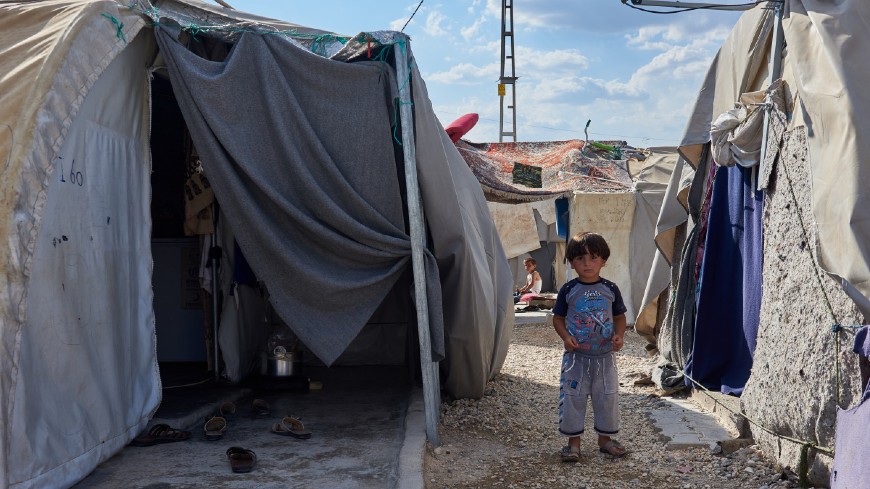On 8 December 2021, the Special Representative of the Secretary General on Migration and Refugees, Ambassador Drahoslav Štefánek, published a report on his fact-finding mission to Turkey. The aim of the mission was to provide a picture of the situation of migrants, refugees, and asylum seekers and of developments since the last visit carried out by the former SRSG in 2016. The report focuses on aspects having a significant impact on respect for human rights of migrants and refugees: access to asylum and the treatment of vulnerable persons, reception conditions, administrative detention, and border issues. The Special Representative is recommending supporting the authorities to further align the implementation of the legislation with Council of Europe standards. The Council of Europe should encourage and support the Turkish authorities to improve access given to non-Syrian asylum seekers to the asylum procedure, to protection and to basic needs. It should also support the improvement of access to effective legal assistance and appeal remedies for foreign nationals, especially in deportation proceedings. Concerning vulnerable groups, and in line with the Council of Europe Action Plan on Protecting Vulnerable Persons in the Context of Migration and Asylum in Europe (2021-2025), Turkey would benefit from establishing a vulnerability screening mechanism, and increasing the availability of safe reception facilities and guardians for the protection of unaccompanied and separated children. The visit was also the occasion to launch the Turkish version of the Handbook on promoting child-friendly procedures in the area of migration, produced by the Office of the Special Representative. This publication contributes to the implementation of the objectives defined in the Action Plan on Protecting Refugee and Migrant Children in Europe (2017-2019).
On 6 December 2021, the Special Representative hosted the 4th meeting of the Network of Focal Points on Migration (NFPM), in a hybrid format. The NFPM meets twice a year and in December 2021 it gathered 48 participants from relevant ministries dealing with migration issues, from 41 member states. The Focal Points exchanged information on national policies and discussed Council of Europe activities related to migration and asylum. An update on progress of the implementation of the Council of Europe Action Plan on Protecting Vulnerable Persons in the Context of Migration and Asylum in Europe (2021 – 2025) was presented at the meeting, including a presentation of relevant activities already implemented, as well as ongoing and foreseen under the Action Plan. Other topics on the agenda included a presentation of the new thematic factsheet on “Migration and Asylum”, published by Department for the Execution of Judgments of the European Court of Human Rights, as well as an update on the relevant case-law of the European Court of Human Rights since the previous meeting of the Network, in June 2021. Since its creation two years ago, the Network has grown to include Focal Points on Migration appointed by 45 member states.
On 14 December 2021, the Special Representative addressed the UNHCR High-Level Officials Meeting on behalf of the Council of Europe. The aim of the meeting was to monitor progress on the implementation of the Global Compact on Refugees and to identify progress, challenges, and areas where engagement and responsibility sharing are needed to increase support, self-reliance, and access to solutions for refugees, taking into account the challenges linked to COVID-19. In his address, the Special Representative praised UNHCR for its efforts to coordinate the follow-up of the implementation of the Global Compact on Refugees and reiterated his organisation’s commitment to reaching its main goals. He informed about Council of Europe’s progress in implementing the pledges made in 2019 and emphasised the added value of regional approaches in achieving concrete and effective results. In this context, he informed on the continued work to address statelessness, specifically the technical meeting and a high-level conference jointly organised with the UNHCR on 23-24 September 2021, and the two priority follow-up actions identified, namely the elaboration of guidance on child-sensitive procedures for stateless children and on the establishment of nationality, in particular for children.
On 17 December 2021, the Permanent Representation of the Grand-Duchy of Luxembourg signed an agreement for a financial contribution to the implementation of the Council of Europe Action Plan on Protecting Vulnerable Persons in the Context of Migration and Asylum in Europe (2021-2025). The Special Representative would like to thank the Luxembourg authorities for this contribution. Some activities of the Action Plan have been implemented already; a thematic factsheet on the execution of judgments of the European Court of Human Rights on migration and asylum, a guide on family-based care for unaccompanied and separated children; an international conference and technical meeting of experts on statelessness and the right to a nationality in Europe, organised by the Council of Europe and UNHCR in September 2021; guidelines on the efficiency and effectiveness of legal aid schemes in civil and administrative law, and a model framework for an intercultural integration strategy at the national level. Ongoing activities under the Action Plan include projects in the field of education, health, children’s rights, as well as country-specific initiatives.
On the occasion of International Migrant´s Day (18 December), the Secretary General Marija Pejčinović Burić announced the appointment of Leyla Kayacik as her new Special Representative on Migration and Refugees. A long-time member of the Council of Europe Secretariat, Ms Kayacik brings over 30 years of international experience in the field of human rights and the rule of law. During that time, she has served in a number of roles, including in the European Commission of Human Rights, the Secretariat of the European Social Charter, in the field and as Director of the Private Office of the Secretary General and Deputy Secretary General. Leyla Kayacik took over the work of Ambassador Drahoslav Štefánek on 1 January 2022, after he completed his two-year mandate.



